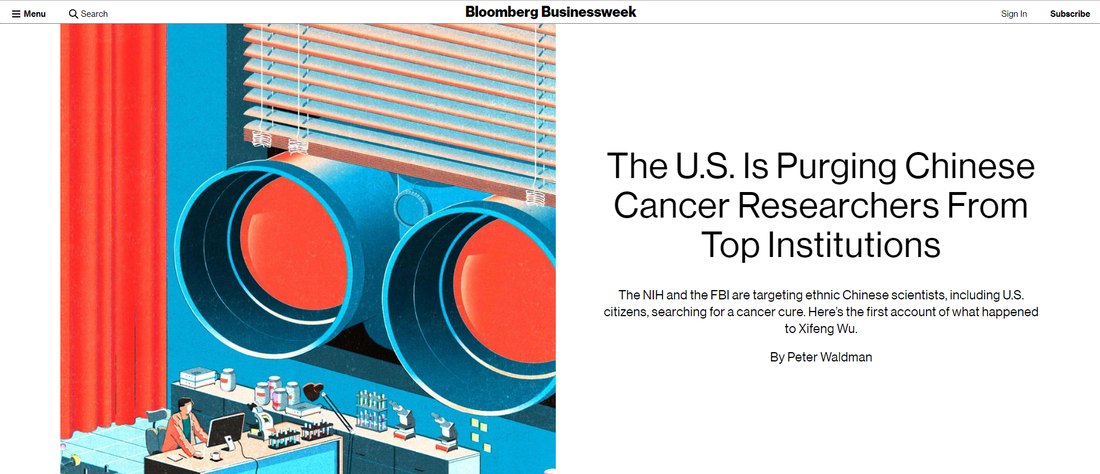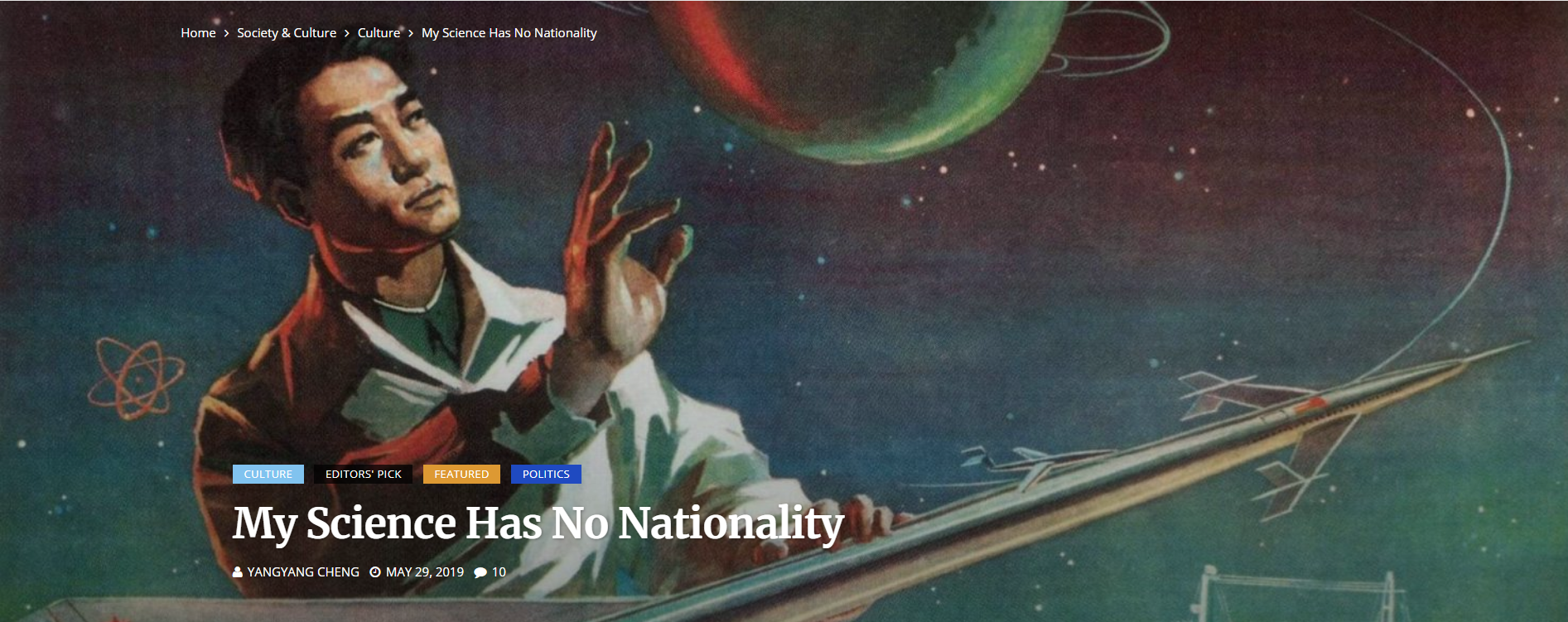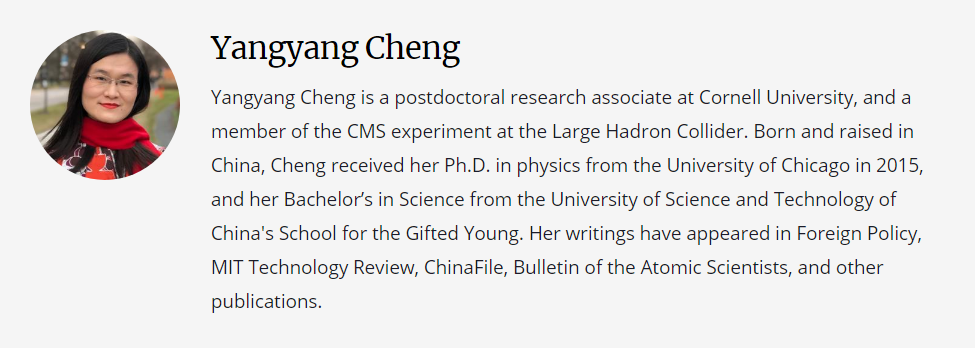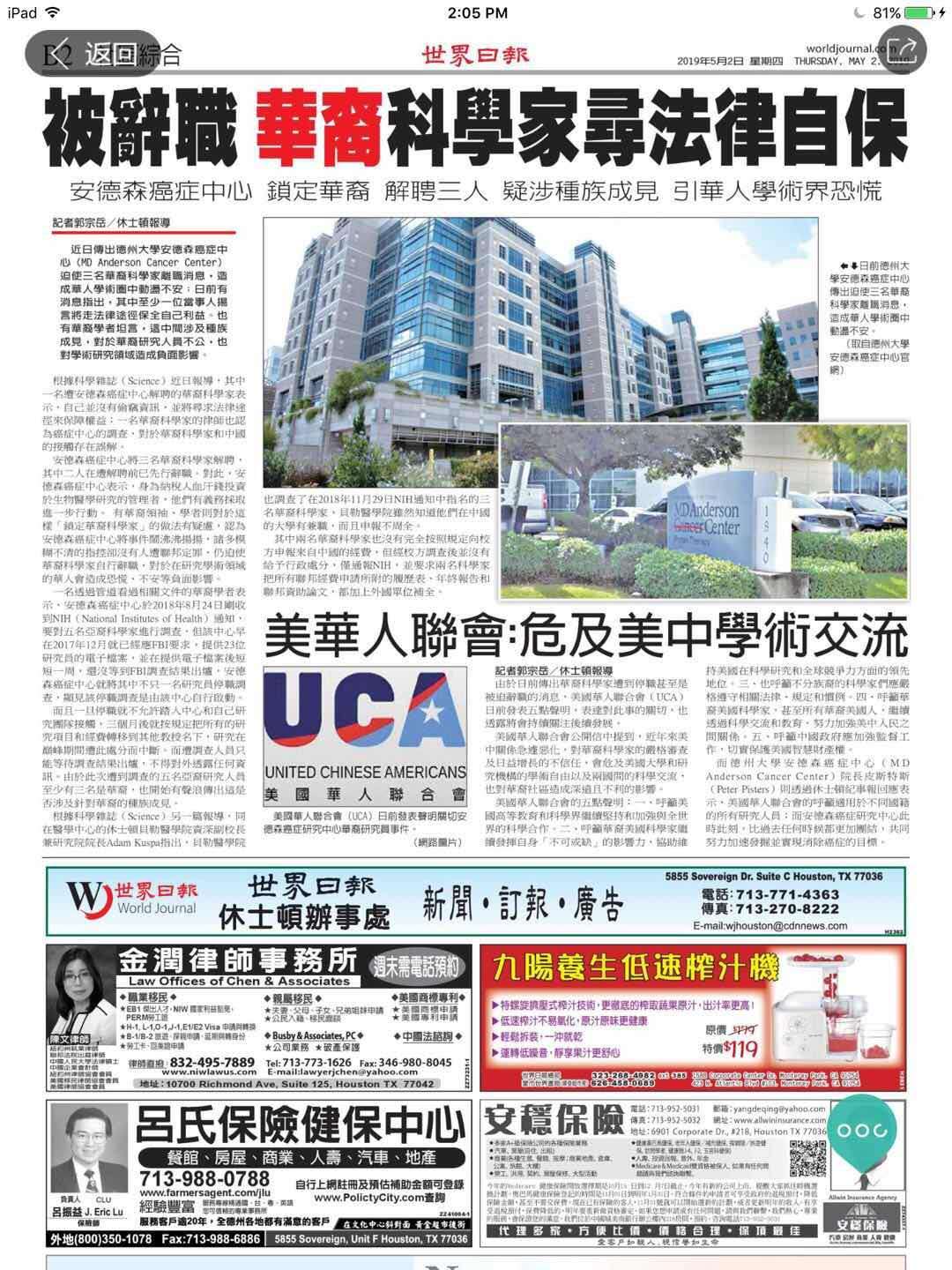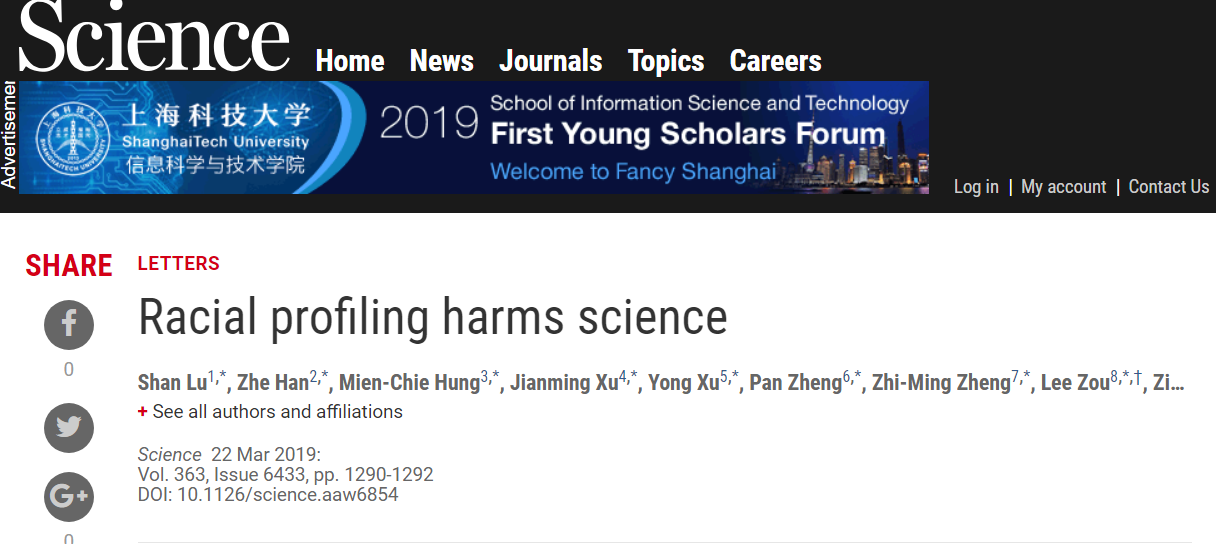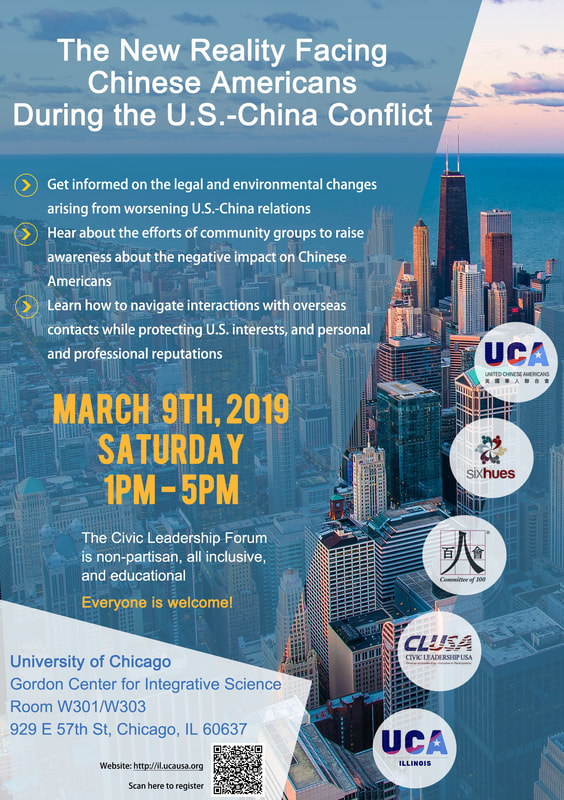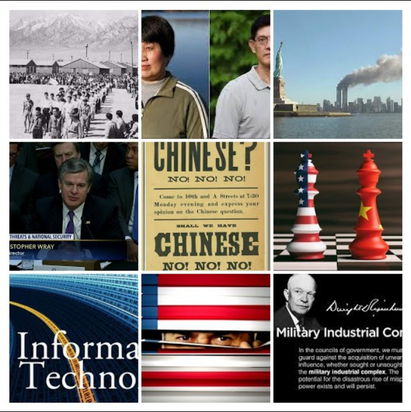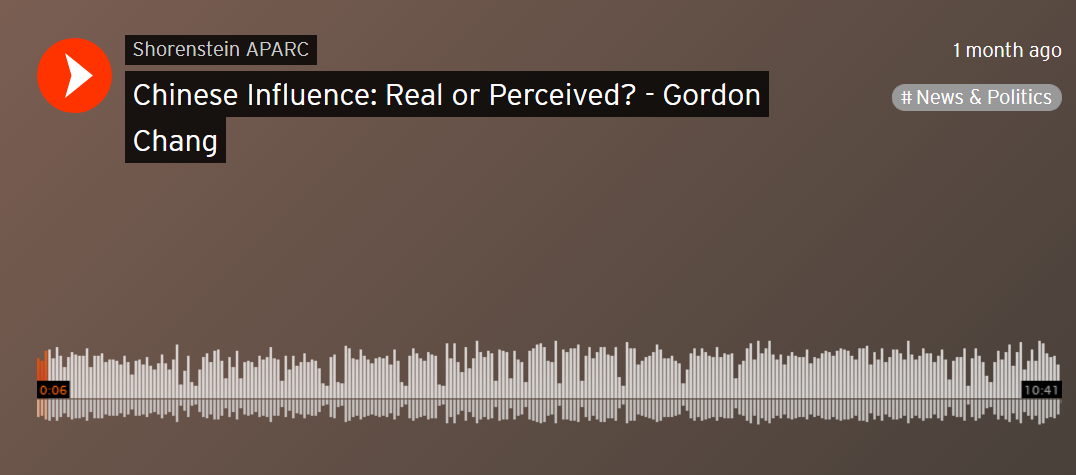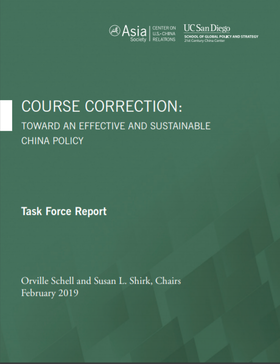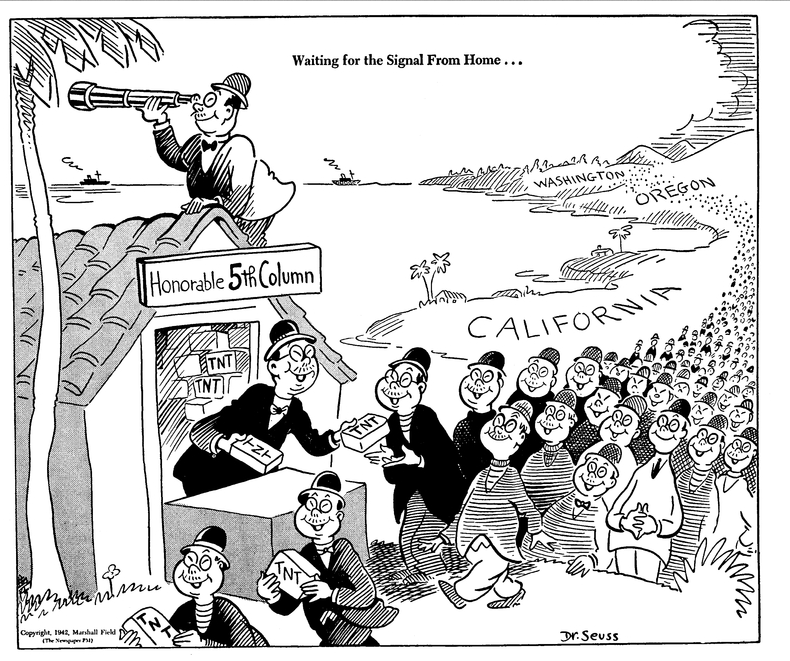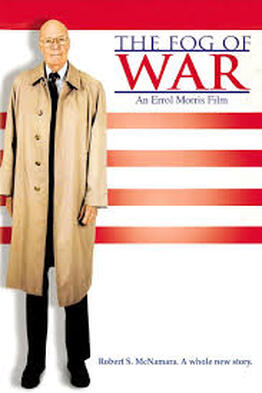On August 26, 2023, supporters, volunteers, and staff from national, state, and local AAPI organizations gathered at the 60th anniversary of the historic March on Washington.
The original March on Washington for Jobs and Freedom took place on August 28, 1963, in which over 200,000 people gathered for Black equality and civil rights– and during which Martin Luther King delivered his historic “I Have a Dream” speech.
The AAPI contingent was an intergenerational gathering – with American-born second generation and first-generation naturalized citizens, and Asians — representing multiple organizations and races.
John C. Yang, president and executive director of Asian Americans Advancing Justice – Asian American Justice Center (AAAJ-AAJC) gave a rallying speech at the march.
Multiple organizations made reference to the long history of AAPIs in civil rights work.
“While JACL was the only Asian American organization to formally join the 1963 march, this year we look forward to being joined by hundreds more of our partner Asian American organizations,” the Japanese American Citizens League shared in a statement.
“Chinese Americans had our long history of civil rights movement, e.g. Yick Wo v. Hopkins in 1886, Steven Pei, co-organizer of APA Justice and founding chair of the United Chinese Americans, told AsAmNews via email.
Thanks to donation of the Committee of 100 and the Yellow Whistle Project, United Chinese Americans, and other organizations, passed out yellow whistles as part of an anti-Asian hate project. The pamphlet describes the whistle as a “symbol of self-protection and solidarity in our common fight against historical discrimination and anti-Asian violence,” reclaiming the color yellow which “has been weaponized against Asians as the color of xenophobia.”
According to Pei, half a million whistles have been distributed nationwide since April 2021, and another 300,000 have been ordered.
Participants joined from across the country, including Texas, California, Massachusetts, and more. Tibetan American Baimadajie Angwang, who was accused of being a Chinese spy in 2020 under the "China Initiative" targeting AAPIs (all charges were dropped earlier this year), traveled from New
York to attend the march.
“We are here to be united. We are all the same. When they push the American dream to immigrants, they say if you work hard, follow the rules, you will be treated fairly. I did everything an immigrant is instructed to do but because of anti-Asian rhetoric, I got accused of being a spy who works for China,”
Angwang told AsAmNews.
References and Links
2023/09/01 101 Magazine: 60 Years Later: Continuing to March for the Future
2023/08/29 Inspirational People: 被美国政府诬陷为“中国政府代理人”的美籍华人昂旺首次发声 (YouTube, 3:40)
2023/08/27 UCA: 我们有一个梦想 | UCA组织March on Washington 60周年活动圆满成功举行
2023/08/26 AsAmNews: AAPIs show solidarity at 60th Anniversary of March on Washington
The original March on Washington for Jobs and Freedom took place on August 28, 1963, in which over 200,000 people gathered for Black equality and civil rights– and during which Martin Luther King delivered his historic “I Have a Dream” speech.
The AAPI contingent was an intergenerational gathering – with American-born second generation and first-generation naturalized citizens, and Asians — representing multiple organizations and races.
John C. Yang, president and executive director of Asian Americans Advancing Justice – Asian American Justice Center (AAAJ-AAJC) gave a rallying speech at the march.
Multiple organizations made reference to the long history of AAPIs in civil rights work.
“While JACL was the only Asian American organization to formally join the 1963 march, this year we look forward to being joined by hundreds more of our partner Asian American organizations,” the Japanese American Citizens League shared in a statement.
“Chinese Americans had our long history of civil rights movement, e.g. Yick Wo v. Hopkins in 1886, Steven Pei, co-organizer of APA Justice and founding chair of the United Chinese Americans, told AsAmNews via email.
Thanks to donation of the Committee of 100 and the Yellow Whistle Project, United Chinese Americans, and other organizations, passed out yellow whistles as part of an anti-Asian hate project. The pamphlet describes the whistle as a “symbol of self-protection and solidarity in our common fight against historical discrimination and anti-Asian violence,” reclaiming the color yellow which “has been weaponized against Asians as the color of xenophobia.”
According to Pei, half a million whistles have been distributed nationwide since April 2021, and another 300,000 have been ordered.
Participants joined from across the country, including Texas, California, Massachusetts, and more. Tibetan American Baimadajie Angwang, who was accused of being a Chinese spy in 2020 under the "China Initiative" targeting AAPIs (all charges were dropped earlier this year), traveled from New
York to attend the march.
“We are here to be united. We are all the same. When they push the American dream to immigrants, they say if you work hard, follow the rules, you will be treated fairly. I did everything an immigrant is instructed to do but because of anti-Asian rhetoric, I got accused of being a spy who works for China,”
Angwang told AsAmNews.
References and Links
2023/09/01 101 Magazine: 60 Years Later: Continuing to March for the Future
2023/08/29 Inspirational People: 被美国政府诬陷为“中国政府代理人”的美籍华人昂旺首次发声 (YouTube, 3:40)
2023/08/27 UCA: 我们有一个梦想 | UCA组织March on Washington 60周年活动圆满成功举行
2023/08/26 AsAmNews: AAPIs show solidarity at 60th Anniversary of March on Washington
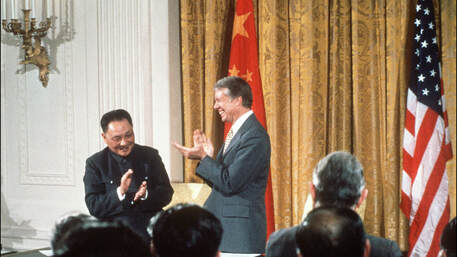
One of the most foundational agreements between the United States and China, the Science and Technology Cooperation Agreement (STA), expired on August 27, 2023. According to the latest reports, it has been extended for 6 months as a stop-gap measure.
Originally signed in 1979, STA has been renewed about every five years with the last time being in 2018. The agreement laid out the terms for government-to-government cooperation in science, opening the way for academic and corporate interactions.
More than four decades into the agreement that included a pandemic and several
administrations of fiery rhetoric, the broader nature of that cooperation is being scrutinized over
concerns about Beijing-backed intellectual property theft and the Chinese military benefitting from knowledge about U.S. scientific advances.
On August 22, 2023, Stanford University Professors Steven Kivelson and Peter F. Michelson issued a message calling for faculty members and scholars at U.S. institutions of higher learning to co-sign a letter to President Joe Biden to renew the US-China Protocol on Scientific and Technological Cooperation.
On August 24, 2023, Professors Kivelson and Michelson sent a message to President Biden and the Members of the US National Security Council to express their strong support for renewing the US-China Protocol on Scientific and Technological Cooperation. Their letter was endorsed by over 1,000 faculty and scholars from many US universities including multiple Nobel Laureates, members of the National Academies, and of the American Academy of Arts and Sciences.
References and Links
2024/02/08 Nature: US and China likely to delay renewal of key science pact again
2023/11/17 Congressional Research Service: U.S.-China Science and Technology Cooperation Agreement
2023/09/15 AIP: US–China Scientific Collaboration Agreement in Limbo
2023/09/06 South China Morning Post: Future of cooperative US-China science agreement is in doubt, say American physicists
2023/08/29 Science: U.S.-China tensions could complicate effort to renew key research pact
2023/08/28 The Conversation: The US and China may be ending an agreement on science and technology cooperation
2023/08/26 Nikkie Asia: Over 1,000 scientists urge Biden to renew U.S.-China cooperation deal
2023/08/25 Nature: US extends science pact with China: what it means for research
2023/08/24 Foreign Policy: Biden Puts U.S.-China Science Partnership on Life Support
2023/08/24 Kivelson and Michelson: Letter to the President and the National Security Council
2023/08/24 Science: White House requests extension of agreement with China on joint research
2023/08/24 South China Morning Post: Oldest US-China science deal up in the air as Washington seeks to ‘amend terms’
2023/08/24 The Economist: The clock is ticking on an old deal between America and China
2023/08/23 Reuters: US seeks extension to controversial science agreement with China
2023/08/23 NBC News: Biden resists pressure from lawmakers and seeks short extension to key China science pact
2023/08/23 The Guardian: US seeks to extend longstanding scientific research agreement with China
2023/08/22 The Guardian: Warnings of scientific ‘suicide’ as US-China research collaboration hangs in balance
2023/08/21 Kivelson and Michelson: Letter to the President
2023/08/21 Kivelson and Michelson: Invitation to Sign on to Letter to the President
2923/08/20 The Wire China: The Science Split?
2023/08/16 Wall Street Journal: The U.S. Is Turning Away From Its Biggest Scientific Partner at a Precarious Time
2023/08/12 South China Morning Post: Clock ticks down for China-US science deal amid tech theft fears
2023/08/05 Axios: Future of 44-year-old science agreement caught in middle of U.S.- China tensions
2023/08/04 CSIS: The Case for Renewing the U.S.-China S&T Cooperation Agreement
2023/06/18 Reuters: Amid US-China rivalry, a landmark science deal faces new scrutiny
2018/09/22 Department of State: Amending and Extending the Agreement of January 31, 1979, as Amended and Extended
2018/01/31 Department of State: Extending the Agreement of January 31, 1979, as Amended and Extended, for 6 months
1979/01/31 The American Presidency Project: Agreement Between the United States and China on Cooperation in Science and Technology
Originally signed in 1979, STA has been renewed about every five years with the last time being in 2018. The agreement laid out the terms for government-to-government cooperation in science, opening the way for academic and corporate interactions.
More than four decades into the agreement that included a pandemic and several
administrations of fiery rhetoric, the broader nature of that cooperation is being scrutinized over
concerns about Beijing-backed intellectual property theft and the Chinese military benefitting from knowledge about U.S. scientific advances.
On August 22, 2023, Stanford University Professors Steven Kivelson and Peter F. Michelson issued a message calling for faculty members and scholars at U.S. institutions of higher learning to co-sign a letter to President Joe Biden to renew the US-China Protocol on Scientific and Technological Cooperation.
On August 24, 2023, Professors Kivelson and Michelson sent a message to President Biden and the Members of the US National Security Council to express their strong support for renewing the US-China Protocol on Scientific and Technological Cooperation. Their letter was endorsed by over 1,000 faculty and scholars from many US universities including multiple Nobel Laureates, members of the National Academies, and of the American Academy of Arts and Sciences.
References and Links
2024/02/08 Nature: US and China likely to delay renewal of key science pact again
2023/11/17 Congressional Research Service: U.S.-China Science and Technology Cooperation Agreement
2023/09/15 AIP: US–China Scientific Collaboration Agreement in Limbo
2023/09/06 South China Morning Post: Future of cooperative US-China science agreement is in doubt, say American physicists
2023/08/29 Science: U.S.-China tensions could complicate effort to renew key research pact
2023/08/28 The Conversation: The US and China may be ending an agreement on science and technology cooperation
2023/08/26 Nikkie Asia: Over 1,000 scientists urge Biden to renew U.S.-China cooperation deal
2023/08/25 Nature: US extends science pact with China: what it means for research
2023/08/24 Foreign Policy: Biden Puts U.S.-China Science Partnership on Life Support
2023/08/24 Kivelson and Michelson: Letter to the President and the National Security Council
2023/08/24 Science: White House requests extension of agreement with China on joint research
2023/08/24 South China Morning Post: Oldest US-China science deal up in the air as Washington seeks to ‘amend terms’
2023/08/24 The Economist: The clock is ticking on an old deal between America and China
2023/08/23 Reuters: US seeks extension to controversial science agreement with China
2023/08/23 NBC News: Biden resists pressure from lawmakers and seeks short extension to key China science pact
2023/08/23 The Guardian: US seeks to extend longstanding scientific research agreement with China
2023/08/22 The Guardian: Warnings of scientific ‘suicide’ as US-China research collaboration hangs in balance
2023/08/21 Kivelson and Michelson: Letter to the President
2023/08/21 Kivelson and Michelson: Invitation to Sign on to Letter to the President
2923/08/20 The Wire China: The Science Split?
2023/08/16 Wall Street Journal: The U.S. Is Turning Away From Its Biggest Scientific Partner at a Precarious Time
2023/08/12 South China Morning Post: Clock ticks down for China-US science deal amid tech theft fears
2023/08/05 Axios: Future of 44-year-old science agreement caught in middle of U.S.- China tensions
2023/08/04 CSIS: The Case for Renewing the U.S.-China S&T Cooperation Agreement
2023/06/18 Reuters: Amid US-China rivalry, a landmark science deal faces new scrutiny
2018/09/22 Department of State: Amending and Extending the Agreement of January 31, 1979, as Amended and Extended
2018/01/31 Department of State: Extending the Agreement of January 31, 1979, as Amended and Extended, for 6 months
1979/01/31 The American Presidency Project: Agreement Between the United States and China on Cooperation in Science and Technology
Please sign on to the campaign here: https://bit.ly/OpposeArrowoodNomination
2022/08/31 Tennessee Lookout: Asian American groups urge rejection of nominee for U.S. Attorney in Tennessee’s Eastern District. https://bit.ly/3CIVj7T
2022/08/11 Tennessee Lookout: Falsely accused University of Tennessee professor: Biden should rescind U.S. Attorney nomination. https://bit.ly/3C1YiYv
- 2022/11/10 Committee of 100: Committee of 100 Expresses Concerns Over Mr. Casey Arrowood Being Nominated to Serve as U.S. Attorney for the Eastern District of Tennessee. http://bit.ly/3EBDpEy
- 2022/11/06 Knox News: 'I want him voted down': Professor wrongly accused of spying fights prosecutor's promotion. https://bit.ly/3UDuYgZ
- 2022/09/06 Coalition letter to President Biden requesting the withdrawal of the nomination of Casey Arrowood. https://bit.ly/3KTWGTm
- 2022/09/06 Coalition letter to Senate Judiciary Committee requesting no action on the nomination of Casey Arrowood before thorough review. https://bit.ly/3KSy79l
- 2022/09/02 Department of Justice: Response to June 17, 2021, Request for Investigation. https://bit.ly/3rISqgJ
- 2022/08/31 Anming Hu letter to the Senate Judiciary Committee requesting rejection of Arrowood nomination. https://bit.ly/3RezeT6
- 2022/08/24 APA Justice Newsletter: Special Edition on the Campaign to Oppose the Nomination of Mr. Casey Arrowood. https://bit.ly/3ckMgPI
- 2022/08/22 Draft letter to President Biden to withdraw the nomination of Casey Arrowood. https://bit.ly/3T7yeRN
Draft letter to the Senate Judiciary Committee to take no action on the nomination of Casey Arrowood. https://bit.ly/3Aajbyh - 2022/08/20 Anming Hu letter to the White House requesting withdrawal of Arrowood nomination. https://bit.ly/3wizTum
2022/08/31 Tennessee Lookout: Asian American groups urge rejection of nominee for U.S. Attorney in Tennessee’s Eastern District. https://bit.ly/3CIVj7T
2022/08/11 Tennessee Lookout: Falsely accused University of Tennessee professor: Biden should rescind U.S. Attorney nomination. https://bit.ly/3C1YiYv
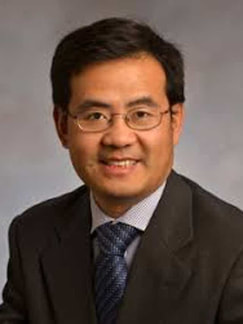
- The White House announced the nomination of Mr. Casey Arrowood to be US Attorney for the Eastern District of Tennessee on July 29, 2022. The Senate Judiciary Committee logged the nomination as PN2444 on August 1, 2022. Academics, elected officials, civil rights groups, and community organizations across the country have raised grave concerns about this nomination --- It will further erode public trust in our judicial system and increase the chilling effect on U.S. science and technology.
Mr. Arrowood was the lead prosecutor of University of Tennessee Professor Anming Hu, an internationally-renown nanotechnology expert and the first academic to go to trial under the now-defunct “China Initiative.”
Court testimonies and documents show that Professor Hu was subject to a two-year Federal Bureau of Investigations (FBI) investigation started by a Google search, not a criminal predicate. Professor Hu was fired by the University of Tennessee at Knoxville based on misleading and false information provided by the government.
When the false allegation that Professor Hu spied for China could not be supported by facts and evidence, he was pressed to spy on China for the U.S. government. After Professor Hu refused, Mr. Arrowood mounted a wire fraud case against Professor Hu. The jury deadlocked, and a mistrial was declared.
On June 17, 2021, three members of the House Judiciary Committee, Reps. Ted Lieu, Mondaire Jones, and Pramila Jayapal, referred the case to the Inspector General at the Department of Justice for review out of concerns of alleged misconduct of the FBI in Professor Hu’s case.
Mr. Arrowood’s wrongful prosecution of Professor Hu betrayed the public trust and confidence we all place in our judicial system.
According to media report, a member of the all-white jury entered the 2021 trial assuming that the government handled the case with honesty and integrity. At the end of the mistrial, she concluded publicly that it was “the most ridiculous case” and “if this is who is protecting America, we’ve got problems.”
Instead of reviewing his weak case and acting in the interests of justice, Mr. Arrowood pursued a retrial of Professor Hu.
In the order to acquit Professor Hu of all charges in the indictment, Judge Thomas Varlan ruled that the government's evidence, even if given in the light most favorable to the government, would be clearly insufficient for a rational jury to convict Professor Hu of the crimes alleged.
Despite the judge's ruling, the unjust prosecution forever changed the lives of Professor Hu and his family. To this day, Professor Hu describes that period as "the darkest time of [his] life" as he and his family endured financial instability, traumas, family separation, and a long battle for justice.
The nomination of Mr. Arrowood is an affront to the Asian American, immigrant, and scientific communities. It opens a new wound when we still need to heal from years of prosecution and targeting of Asian Americans and immigrants during and before the "China Initiative." Our communities continue to work towards justice and ensuring substantive reforms to end the targeting and profiling of Asian Americans and immigrants.
Mr. Arrowood demonstrated his poor judgment, wasted valuable taxpayers’ dollars, failed to uphold justice and fairness, and eroded public trust. His wrongful prosecution of Professor Hu, not once but twice, is deplorable and an embarrassment to our nation.
In an exclusive interview with Tennessee Lookout on August 11, 2022, Professor Hu called for President Joe Biden to withdraw the nomination of Mr. Arrowood. “My case was a case of wrongful prosecution, and I believe (if Arrowood is confirmed) similar things will happen again and will damage long term the U.S. (government’s) reputation,” Professor Hu said. “If you do something wrong, you should have consequences. Instead, (Arrowood) is getting rewarded. It is very unfair. I do not think this is a reasonable nomination.”
On August 20, 2022, Professor Hu and his family wrote to the White House requesting President Biden to rescind the nomination of Mr. Arrowood. Professor Hu cited four explanations for his objection:
- As the leading prosecutor, Mr. Arrowood should have stopped this wrongful investigation and never brought this case forward for prosecution.
- As an Assistant U.S. Attorney, Mr. Arrowood himself did not understand the law that he was prosecuting.
- This wrongful prosecution created a strong chilling effect among the Chinese American community.
- This nomination has harmed the reputation of the U.S. government.
APA Justice, Asian American Scholar Forum, Tennessee Chinese American Alliance, and United Chinese Americans launched this nationwide campaign to support Professor Hu and oppose the nomination of Mr. Arrowood. We give voice to Asian Americans and immigrants, the scientific and academic community, and to the impacted persons and their families.
We call for the White House to withdraw the nomination, and the Senate Judiciary Committee to take no action on the nomination before a thporugh investigation and a hearing have been completed.
We will continue to collect organizational and individual co-signers until there is an end to the nomination of Mr. Arrowood. Please help spread the word if you have already signed on and fill out the form here if you have not yet done so: https://bit.ly/OpposeArrowoodNomination
Please help spread the word about this campaign widely. We also encourage organizations and individuals to send their own letters directly to the White House and the Senate Judiciary Committee. Email [email protected] if you have any questions or comments.
Note: Organizers of the campaign retain the right to decide on the final co-signers to the letters.
Links and References
United States v. Hu (TV1) (3:20-cr-00021). District Court, E.D. Tennessee. https://bit.ly/3u884RX
APA Justice: Anming Hu. https://bit.ly/APAJ_AnmingHu
2022/10/06 Knox News Opinion: Biden nominee for U.S. Attorney position in East Tennessee causes concerns | Opinion
2022/09/30 Nikkei Asia: Chinese Americans oppose U.S. attorney nominee over targeted prosecution
2022/09/26 Asian American & Pacific Islander Legislative Caucus: Letter to Senator Diane Feinstein
Asian American & Pacific Islander Legislative Caucus: Letter to Senator Alex Padilla
2022/09/20 WPLN: AAPI advocates are calling for Biden to withdraw his nomination for one of Tennessee’s top prosecutors
2022/09/06 Impacted Scientists: Letter to President Biden requesting the withdrawal of the Nomination of Mr. Casey Arrowood
Impacted Scientists: Letter to the Senate Judiciary Committee Requesting No Action on The Nomination on Mr. Casey Arrowood Before a Through Review
2022/09/02 Committee of Concerned Scientists: CCS Urges President Biden to Withdraw Nomination of Casey Arrowhead as US Attorney in Eastern Tennessee
2022/09/01 AsAmNews: Opposition grows to Biden nomination of lawyer in Chinese spy case
2022/08/31 Tennessee Lookout: Asian American groups urge rejection of nominee for U.S. Attorney in Tennessee’s Eastern District
API Middle Tennessee: Statement on Casey T. Arrowood Nomination
Tennessee Bar Association: Asian American Groups Oppose U.S. Attorney Pick for Eastern District
Yahoo News: Asian American advocacy groups oppose nomination of US attorney candidate in Tennessee
Anming Hu letter to the Senate Judiciary Committee requesting rejection of Arrowood nomination. https://bit.ly/3RezeT6
2022/08/24 APA Justice Newsletter: Special Edition on the Campaign to Oppose the Nomination of Mr. Casey Arrowood
2022/08/22 Coalition draft letter to President Biden to withdraw the nomination of Casey Arrowood.
Coalition draft letter to the Senate Judiciary Committee to take no action on the nomination of Casey Arrowood
UCA: Oppose the Nomination of Casey Arrowood to Be US Attorney
Group joint letter to CAPAC Chair Rep. Judy Chu. https://bit.ly/3PWOFh8
2022/08/20 Anming Hu letter to the White House requesting withdrawal of Arrowood nomination. https://bit.ly/3wizTum
2022/08/15 Group joint letter to President Joe Biden. https://bit.ly/3e2gNCt
Group joint letter to Vice President Kamala Harris. https://bit.ly/3RfwN25
Celeste Pewter: call your Senators and oppose the nomination of Casey Arrowood
2022/08/11 Tennessee Lookout: Falsely accused University of Tennessee professor: Biden should rescind U.S. Attorney nomination. https://bit.ly/3C1YiYv
Tennessee Bar Association: UT Professor Hu Criticizes Biden’s Pick for Prosecutor. https://bit.ly/3cjjU8x
2021/09/09 U.S. District Court Eastern District of Tennessee. Memorandum Opinion and Order. Document 141, Case 3:20-cr-00021-TAV-DCP. https://bit.ly/38RTaXp
2021/06/23 Intercept. “Ridiculous Case”: Juror Criticizes DOJ for Charging Scientist with Hiding Ties to China. https://bit.ly/3xNnBZ3
2021/06/17 Joint letter by Reps. Ted Lieu, Mondaire Jones and Pramila Jayapal to DOJ Inspector General Michael Horowitz. https://bit.ly/3yizJ4L
2021/06/13 Knox News. Trial reveals federal agents falsely accused a UT professor born in China of spying. https://bit.ly/3zimH8q
2022/02/23 University of Michigan Association of Chinese Professors: Impact of Federal Policy on Academic Research and Academic Brain Drain
2022 Asian American Scholar Forum: Caught in the Crossfire: Fears of Chinese-American Scientists
Asian American Scholar Forum: Supplemental Materials for Caught in the Crossfire: Fears of Chinese-American Scientists
Asian American Scholar Forum: National Academic Climate Survey Findings
2021/10 University of Arizona and Committee of 100: Racial Profiling Among Scientists of Chinese Descent and Consequences for the U.S. Scientific Community
2021/10 American Physical Society: Research Security Policies & Their Impacts: Key Results of APS Member Survey
2021/07 University of Michigan Association of Chinese Professors: UM-ACP July 2021 Survey
2022 Asian American Scholar Forum: Caught in the Crossfire: Fears of Chinese-American Scientists
Asian American Scholar Forum: Supplemental Materials for Caught in the Crossfire: Fears of Chinese-American Scientists
Asian American Scholar Forum: National Academic Climate Survey Findings
2021/10 University of Arizona and Committee of 100: Racial Profiling Among Scientists of Chinese Descent and Consequences for the U.S. Scientific Community
2021/10 American Physical Society: Research Security Policies & Their Impacts: Key Results of APS Member Survey
2021/07 University of Michigan Association of Chinese Professors: UM-ACP July 2021 Survey
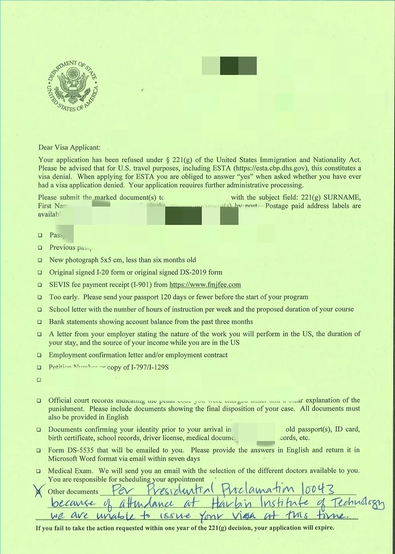
On May 29, 2020, the Trump administration announced Presidential Proclamation 10043 (PP 10043) "Suspension of Entry as Nonimmigrants of Certain Students and Researchers From the People's Republic of China." By September 9, 2020, CNBC reported that over 1,000 visas for Chinese nationals were cancelled because they were deemed security risks with military ties. These students were not given any explanation as to why their visas were revoked under the Proclamation, nor any opportunity to challenge the revocation. According to The College Post on February 5, 2021, Visa restrictions may block one-fifth of Chinese graduate STEM enrollment annually.
On June 10, 2021, the American Council on Education (ACE) sent a letter, co-signed by a number of higher education associations, to the U.S. Department of State under the Biden administration outlining concerns about the application of Presidential Proclamation 10043 on student and scholar visa applications at U.S. embassies/consulates.
On August 10, 2021, Forbes reported that "Biden Keeps Costly Trump Visa Policy Denying Chinese Grad Students." On September 15, 2021, a Department of State Federal Register notice announced the Secretary of State's delegation of authority to the Assistant Secretary for Consular Affairs to make national interest determinations under the PRC "Military-Civil Fusion Strategy proclamation to exempt students and researchers who would be otherwise covered by the entry bar under that proclamation, but "whose entry would be in the national interest, as determined by the Secretary of State, the Secretary of Homeland Security, or their respective designees."
On June 27, 2022, a civil lawsuit was filed in the U.S. District Court for the Central District of Illinois Urbana Division. Led by a professor of Mathematics and Electrical and Computer Engineering at the University of Illinois at Urbana-Champaign and a group of students affected by the PP10043 ban, the lawsuit challenges the U.S. Government's continuing efforts to ban the entry of Chinese nationals who seek to study at U.S. universities.
Links and References
Website: https://www.10043.org/
Federal Register: Presidential Proclamation
2023/04/11 Forbes: Chinese Students Still Denied Visas Under Trump Immigration Order
2023/03/20 Committee of Concerned Scientists: a letter to President Joe Biden on cross-border profiling
2022/08/13 Forbes: U.S. Universities Face Headwinds In Recruiting International Students
2022/08/11 Wall Street Journal: Chinese Student Visas to U.S. Tumble From Prepandemic Levels
2022/06/27 Plaintiffs' Original Complaint for Declaratory and Injunctive Relief
2022/05/26 Department of State: Speech by Secretary of State on The Administration’s Approach to the People’s Republic of China
2021/09/15 NAFSA: Proclamation Suspending Entry of Chinese Students and Researchers Connected to PRC “Military-Civil Fusion Strategy"
2021/08/10 Forbes: Biden Keeps Costly Trump Visa Policy Denying Chinese Grad Students
CNN: A Trump-era policy that shut out top Chinese students could be hurting America more than Beijing
2021/07/27 Science: U.S. visa rejections shattered Chinese students’ dreams. Now they’re fighting back
2021/06/10 ACE: American Council on Education Letter to USDOS Regarding PP10043 Suspending Entry of Students/Researchers from China
2021/02/05 The College Post: Visa Restrictions May Block One-Fifth of Chinese Graduate STEM Enrollment Annually: Study
2020/09/28 APS: APS Files FOIA Request in Response to Revocation of Visas for Chinese Students
2020/09/09 CNBC: U.S. cancels over 1,000 visas for Chinese nationals deemed security risks
2020/05/29 Presidential Proclamation 10043: Suspension of Entry as Nonimmigrants of Certain Students and Researchers From the People's Republic of China
On June 10, 2021, the American Council on Education (ACE) sent a letter, co-signed by a number of higher education associations, to the U.S. Department of State under the Biden administration outlining concerns about the application of Presidential Proclamation 10043 on student and scholar visa applications at U.S. embassies/consulates.
On August 10, 2021, Forbes reported that "Biden Keeps Costly Trump Visa Policy Denying Chinese Grad Students." On September 15, 2021, a Department of State Federal Register notice announced the Secretary of State's delegation of authority to the Assistant Secretary for Consular Affairs to make national interest determinations under the PRC "Military-Civil Fusion Strategy proclamation to exempt students and researchers who would be otherwise covered by the entry bar under that proclamation, but "whose entry would be in the national interest, as determined by the Secretary of State, the Secretary of Homeland Security, or their respective designees."
On June 27, 2022, a civil lawsuit was filed in the U.S. District Court for the Central District of Illinois Urbana Division. Led by a professor of Mathematics and Electrical and Computer Engineering at the University of Illinois at Urbana-Champaign and a group of students affected by the PP10043 ban, the lawsuit challenges the U.S. Government's continuing efforts to ban the entry of Chinese nationals who seek to study at U.S. universities.
Links and References
Website: https://www.10043.org/
Federal Register: Presidential Proclamation
2023/04/11 Forbes: Chinese Students Still Denied Visas Under Trump Immigration Order
2023/03/20 Committee of Concerned Scientists: a letter to President Joe Biden on cross-border profiling
2022/08/13 Forbes: U.S. Universities Face Headwinds In Recruiting International Students
2022/08/11 Wall Street Journal: Chinese Student Visas to U.S. Tumble From Prepandemic Levels
2022/06/27 Plaintiffs' Original Complaint for Declaratory and Injunctive Relief
2022/05/26 Department of State: Speech by Secretary of State on The Administration’s Approach to the People’s Republic of China
2021/09/15 NAFSA: Proclamation Suspending Entry of Chinese Students and Researchers Connected to PRC “Military-Civil Fusion Strategy"
2021/08/10 Forbes: Biden Keeps Costly Trump Visa Policy Denying Chinese Grad Students
CNN: A Trump-era policy that shut out top Chinese students could be hurting America more than Beijing
2021/07/27 Science: U.S. visa rejections shattered Chinese students’ dreams. Now they’re fighting back
2021/06/10 ACE: American Council on Education Letter to USDOS Regarding PP10043 Suspending Entry of Students/Researchers from China
2021/02/05 The College Post: Visa Restrictions May Block One-Fifth of Chinese Graduate STEM Enrollment Annually: Study
2020/09/28 APS: APS Files FOIA Request in Response to Revocation of Visas for Chinese Students
2020/09/09 CNBC: U.S. cancels over 1,000 visas for Chinese nationals deemed security risks
2020/05/29 Presidential Proclamation 10043: Suspension of Entry as Nonimmigrants of Certain Students and Researchers From the People's Republic of China
2020 Ended With A Positive Story
Latest Updates
2022/08/05 AP: Texan sentenced to 25 years for virus-era attack on Asians
CBS News: Texan sentenced for attacking Asian family with steak knife at Sam's Club
2022/08/04 Department of Justice: Texas Man Sentenced on Hate Crime Charges for Attacking Asian Family
On February 24, 2022, the Washington Post published Texas man accused of attacking Asian family over racist coronavirus fears pleads guilty to hate-crime charges. A 21-year-old Texas man, Jose Gomez III, who attempted to kill an Asian man and his young child because he thought they were Chinese — and therefore, he said, responsible for the coronavirus pandemic — has pleaded guilty to federal hate-crime charges. He slashed the 6-year-old boy’s face. “The blade entered millimeters from [the boy’s] right eye, split his right ear, and wrapped around to the back of his skull,” prosecutors said. Gomez then stabbed a White employee who had intervened to stop the attack.
Justice Department officials said that while Gomez was pinned down after being subdued, he yelled to the family, “Get out of America!” Gomez later told local authorities that he had never seen the father before but had perceived him as a “threat” because he supposedly “came from the country who started spreading the disease around.” He admitted to trying to kill the father and the 6-year-old in an effort to “stop the threat.” Gomez pleaded guilty to three counts of committing a hate crime and faces a maximum sentence of life in prison and a total of $750,000 in fines.
2022/08/05 AP: Texan sentenced to 25 years for virus-era attack on Asians
CBS News: Texan sentenced for attacking Asian family with steak knife at Sam's Club
2022/08/04 Department of Justice: Texas Man Sentenced on Hate Crime Charges for Attacking Asian Family
On February 24, 2022, the Washington Post published Texas man accused of attacking Asian family over racist coronavirus fears pleads guilty to hate-crime charges. A 21-year-old Texas man, Jose Gomez III, who attempted to kill an Asian man and his young child because he thought they were Chinese — and therefore, he said, responsible for the coronavirus pandemic — has pleaded guilty to federal hate-crime charges. He slashed the 6-year-old boy’s face. “The blade entered millimeters from [the boy’s] right eye, split his right ear, and wrapped around to the back of his skull,” prosecutors said. Gomez then stabbed a White employee who had intervened to stop the attack.
Justice Department officials said that while Gomez was pinned down after being subdued, he yelled to the family, “Get out of America!” Gomez later told local authorities that he had never seen the father before but had perceived him as a “threat” because he supposedly “came from the country who started spreading the disease around.” He admitted to trying to kill the father and the 6-year-old in an effort to “stop the threat.” Gomez pleaded guilty to three counts of committing a hate crime and faces a maximum sentence of life in prison and a total of $750,000 in fines.
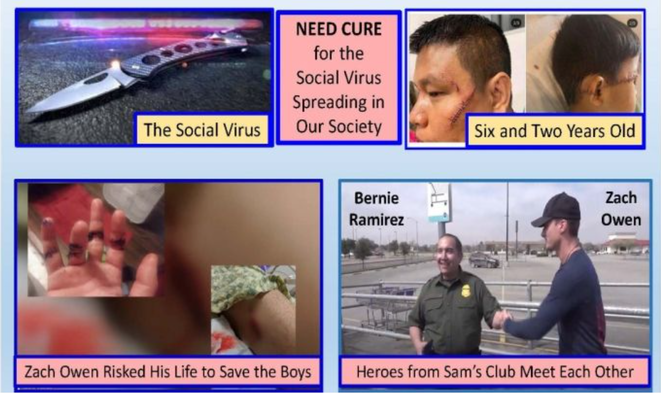
The year 2020 was one of unprecedented challenges that saw our nation increasingly divided, unable to control the COVID-19 pandemic that was filled with anti-Asian hate and continuing profiling of hundreds if not thousands of Chinese American scientists under investigations and prosecutions.
However, it ended with a positive story on humanity in which the heroes and victims in an anti-Chinese hate crime are not even of Chinese origin. On December 27, 2020, a virtual event was held with Professor Steven Pei as the host to conclude a successful GoFundMe campaign, which was reported by the World Journal under the headline 员工勇救亚裔 华人5天募10万
During the event, Zach Owen and Bawi Cung took the stage to express
their appreciation for the generous donations of more than $121,000 from over 2,700 individuals. President Qiang Gan and Treasurer Lin Li of ACP Foundation Dallas reported the state of the finances and various details of the fundraiser. Other organizers for the fundraiser include OCA Greater Houston (H.C. Chang and Cecil Fong); Reagan Hignojos, friend of the Cung Family; United Chinese Americans (Steven Pei); and APAPA Austin Texas Chapter (C.J. Zhao).
Bawi Cung and his two boys, aged 2 & 6, were hate crime victims in Midland, TX on March 14, 2020. The suspect thought the Burmese family was Chinese and spreading the coronavirus and attacked them with a knife. As a bystander, Zach Owen disarmed the suspect bare handedly. Unfortunately, Zach’s right palm also suffered permanent injury and the grip strength is down to 40%.
With the hope to find a better job in the west Texas oil field, Zach came to Midland from Oklahoma. The injury disqualifies him from many oil field jobs. He has also been treated for Post-Traumatic Stress Disorder (PTSD). The first $50,000 of donation will still be given to Zach on or before his birthday in mid-January 2021 to pay for his ongoing out-of-pocket medical bills, cover some of the financial deficit incurred due to the reduced working hours during his recovery period, and also help with Zach’s return to a normal life. We need more heroes like Zach Owen.
Earlier on June 22, 2020, a coalition of Asian American organizations honored Zach Owen and Bernie Ramirez, a Border Patrol agent who also intervened in the violent anti-Asian stabbing with a special Lily and Vincent Chin Advocacy Award Ceremony. It was followed by the From Vincent Chin to George Floyd Webinar led by Helen Zia, award-winning journalist and community activist, and moderated by Gordon Quan, attorney and former Houston City Council member.
On August 10, 2020, Zach Owen testified in the Tri-caucus Congressional Forum on Rise in Anti-Asian Bigotry during the COVID-19 Pandemic,” which was organized by the Congressional Asian Pacific Americcan Caucus.
Links and Reference
2021/03/02 AP News: Victims of anti-Asian attacks reflect a year into pandemic
2021/02/23 PBS News Hour: ‘Words matter’ as Asian American leaders urge action against hate crimes
However, it ended with a positive story on humanity in which the heroes and victims in an anti-Chinese hate crime are not even of Chinese origin. On December 27, 2020, a virtual event was held with Professor Steven Pei as the host to conclude a successful GoFundMe campaign, which was reported by the World Journal under the headline 员工勇救亚裔 华人5天募10万
During the event, Zach Owen and Bawi Cung took the stage to express
their appreciation for the generous donations of more than $121,000 from over 2,700 individuals. President Qiang Gan and Treasurer Lin Li of ACP Foundation Dallas reported the state of the finances and various details of the fundraiser. Other organizers for the fundraiser include OCA Greater Houston (H.C. Chang and Cecil Fong); Reagan Hignojos, friend of the Cung Family; United Chinese Americans (Steven Pei); and APAPA Austin Texas Chapter (C.J. Zhao).
Bawi Cung and his two boys, aged 2 & 6, were hate crime victims in Midland, TX on March 14, 2020. The suspect thought the Burmese family was Chinese and spreading the coronavirus and attacked them with a knife. As a bystander, Zach Owen disarmed the suspect bare handedly. Unfortunately, Zach’s right palm also suffered permanent injury and the grip strength is down to 40%.
With the hope to find a better job in the west Texas oil field, Zach came to Midland from Oklahoma. The injury disqualifies him from many oil field jobs. He has also been treated for Post-Traumatic Stress Disorder (PTSD). The first $50,000 of donation will still be given to Zach on or before his birthday in mid-January 2021 to pay for his ongoing out-of-pocket medical bills, cover some of the financial deficit incurred due to the reduced working hours during his recovery period, and also help with Zach’s return to a normal life. We need more heroes like Zach Owen.
Earlier on June 22, 2020, a coalition of Asian American organizations honored Zach Owen and Bernie Ramirez, a Border Patrol agent who also intervened in the violent anti-Asian stabbing with a special Lily and Vincent Chin Advocacy Award Ceremony. It was followed by the From Vincent Chin to George Floyd Webinar led by Helen Zia, award-winning journalist and community activist, and moderated by Gordon Quan, attorney and former Houston City Council member.
On August 10, 2020, Zach Owen testified in the Tri-caucus Congressional Forum on Rise in Anti-Asian Bigotry during the COVID-19 Pandemic,” which was organized by the Congressional Asian Pacific Americcan Caucus.
Links and Reference
2021/03/02 AP News: Victims of anti-Asian attacks reflect a year into pandemic
2021/02/23 PBS News Hour: ‘Words matter’ as Asian American leaders urge action against hate crimes
NSF's Fundamental Research Security (JASON) Report
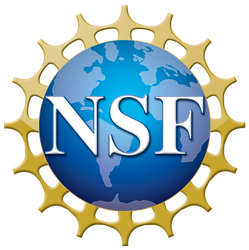
On December 11, 2019, the National Science Foundation (NSF) released a report titled "Fundamental Research Security." The JASON advisory group, founded in 1960 with outside experts who specialize in both science and security, was commissioned to conduct a study and recommend ways for NSF to protect research integrity and maintain balance between openness and security of scientific research.
According to NSF, the JASON report’s findings affirm many of the principles that have already been guiding NSF’s efforts to address security in science, including the need to address the threat carefully, and with the engagement of stakeholders in research, law enforcement and intelligence. Among the themes that emerged from the study were the value of foreign scientific talent in the U.S. and the need to include disclosures of commitments and potential conflicts of interest in the notion of “research integrity.”
The JASON report produced 9 primary findings and 9 recommendations with the following conclusion:
"JASON concludes that many of the problems of foreign influence that have been identified are ones that can be addressed within the framework of research integrity, and that the benefits of openness in research and of the inclusion of talented foreign researchers dictate against measures that would wall off particular areas of fundamental research. We expect that a reinvigorated commitment to U.S. standards of research integrity and the tradition of open science by all stakeholders will drive continued preeminence of the United States in science, engineering, and technology by attracting and retaining the world’s best talent."
On December 12, 2019, Nature published an article quoting the JASON report that the threat of improper foreign influence on US science — in particular from China — is real and growing, ... but the US government should address the situation in ways that preserve the country’s ability to attract top international talent. Steven Pei, a physicist at the University of Houston and former chair of the advocacy group United Chinese Americans in Washington DC, says the report's recommendations strike the right balance between strengthening disclosure rules and maintaining openness in scientific research.
China’s efforts to gather information and influence the US science enterprise are probably the largest and most organized, the JASON report says. But it warns against assuming that Chinese citizens working in the United States, or US citizens of Chinese descent, agree with the Chinese government. Such individuals “should be judged on their personal actions and not by profiling,” the Jasons wrote (page 23).
Links:
2019/12 JASON: Fundamental Research Security
2019/12/20 Science: U.S. takes aim at foreign influence
2019/12/11 National Science Foundation: NSF releases JASON report on research security
Nature: Keep US research open amid threat from China, says elite JASON group
Chemical and Engineering News: New restrictions on foreign scientists or fundamental research not needed, defense panel says
Science: U.S. scientists who hide foreign ties should face research misconduct sanctions, panel says
Federation of American Scientists: JASON Science Advisory Panel Preserved
2019/03/18 Science: NSF hopes Jason can lead it through treacherous waters
According to NSF, the JASON report’s findings affirm many of the principles that have already been guiding NSF’s efforts to address security in science, including the need to address the threat carefully, and with the engagement of stakeholders in research, law enforcement and intelligence. Among the themes that emerged from the study were the value of foreign scientific talent in the U.S. and the need to include disclosures of commitments and potential conflicts of interest in the notion of “research integrity.”
The JASON report produced 9 primary findings and 9 recommendations with the following conclusion:
"JASON concludes that many of the problems of foreign influence that have been identified are ones that can be addressed within the framework of research integrity, and that the benefits of openness in research and of the inclusion of talented foreign researchers dictate against measures that would wall off particular areas of fundamental research. We expect that a reinvigorated commitment to U.S. standards of research integrity and the tradition of open science by all stakeholders will drive continued preeminence of the United States in science, engineering, and technology by attracting and retaining the world’s best talent."
On December 12, 2019, Nature published an article quoting the JASON report that the threat of improper foreign influence on US science — in particular from China — is real and growing, ... but the US government should address the situation in ways that preserve the country’s ability to attract top international talent. Steven Pei, a physicist at the University of Houston and former chair of the advocacy group United Chinese Americans in Washington DC, says the report's recommendations strike the right balance between strengthening disclosure rules and maintaining openness in scientific research.
China’s efforts to gather information and influence the US science enterprise are probably the largest and most organized, the JASON report says. But it warns against assuming that Chinese citizens working in the United States, or US citizens of Chinese descent, agree with the Chinese government. Such individuals “should be judged on their personal actions and not by profiling,” the Jasons wrote (page 23).
Links:
2019/12 JASON: Fundamental Research Security
2019/12/20 Science: U.S. takes aim at foreign influence
2019/12/11 National Science Foundation: NSF releases JASON report on research security
Nature: Keep US research open amid threat from China, says elite JASON group
Chemical and Engineering News: New restrictions on foreign scientists or fundamental research not needed, defense panel says
Science: U.S. scientists who hide foreign ties should face research misconduct sanctions, panel says
Federation of American Scientists: JASON Science Advisory Panel Preserved
2019/03/18 Science: NSF hopes Jason can lead it through treacherous waters
Trump Administration's Ban of WeChat

On August 6, 2020, President Donald Trump signed an executive order seeking to ban U.S. "transactions" with WeChat in 45 days.
On August 21, 2020, the U.S. WeChat Users Alliance (USWUA) filed a civil lawsuit - a Complaint for Declaratory and Injunctive Relief against All Defendants - with the Northern District of California. Docket for case 3:20-cv-05910 is available online.
On September 18, 2020, the U.S. Department of Commerce announced that it will prohibit U.S. transactions with WeChat starting September 20, citing national security and data privacy concerns.
On September 18, 2020, Advancing Justice | AAJC issued a blog statement as part of its Anti-Racial Profiling Project that "[t]he potential ban of WeChat, the 5th most-used social app in the world, would have serious impacts on Asian Americans and communities of color." "There are real issues that should be studied and addressed. Such issues, however, do not seem to warrant an outright ban of WeChat in the U.S.," the statement concludes.
On September 19, 2020, Federal Judge Laurel Beeler issued an injunction against President Trump’s executive order. According to media report, the U.S. government could now appeal to the Ninth Circuit court to seek to overturn the stay.
On September 21, 2020, USWUA announced that it has raised more than $1 million. Continuing developments about this issue are reported in the following links and references:
On August 21, 2020, the U.S. WeChat Users Alliance (USWUA) filed a civil lawsuit - a Complaint for Declaratory and Injunctive Relief against All Defendants - with the Northern District of California. Docket for case 3:20-cv-05910 is available online.
On September 18, 2020, the U.S. Department of Commerce announced that it will prohibit U.S. transactions with WeChat starting September 20, citing national security and data privacy concerns.
On September 18, 2020, Advancing Justice | AAJC issued a blog statement as part of its Anti-Racial Profiling Project that "[t]he potential ban of WeChat, the 5th most-used social app in the world, would have serious impacts on Asian Americans and communities of color." "There are real issues that should be studied and addressed. Such issues, however, do not seem to warrant an outright ban of WeChat in the U.S.," the statement concludes.
On September 19, 2020, Federal Judge Laurel Beeler issued an injunction against President Trump’s executive order. According to media report, the U.S. government could now appeal to the Ninth Circuit court to seek to overturn the stay.
On September 21, 2020, USWUA announced that it has raised more than $1 million. Continuing developments about this issue are reported in the following links and references:
Links and References
Wikipedia: WeChat
CourtListener docket: U.S. WeChat Users Alliance (3:20-cv-05910), District Court, N.D. California
U.S. WeChat Users Alliance (USWUA) website
2020/10/30 MIT Technology Review: Censored by China, under attack in America: what’s next for WeChat?
2020/10/27 South China Morning Post: WeChat ban: US appeal court rejects government request to immediately remove app from Apple, Google stores
2020/10/23 The Verge: Judge again blocks Trump administration push to ban WeChat in the US
2020/10/22 SupChina: Can WeChat be woke? The progressive Chinese Americans countering right-wing narratives
2020/10/07 The Daily Orange: WeChat is critical to Syracuse University’s Chinese student community
2020/10/05 New York Times: WeChat, Wild Rumors and All, Is Their Lifeline. Washington May End That
2020/10/02 New York Times: U.S. Appeals Injunction Against WeChat Ban
2020/10/01 Vox: How Trump’s attempted WeChat ban would devastate Chinese American families like mine
2020/09/22 The Guardian: ‘I will be cut off’: Chinese Americans feel targeted by Trump's WeChat order
2020/09/21 USWUA: 美微联会捐款动态更新
2020/09/20 USWUA: 美华人获历史性胜利,微信禁封令被联邦法官叫停!
New York Times: U.S. Judge Temporarily Halts Trump’s WeChat Ban
Bloomberg: Trump's WeChat Curbs Halted by Judge on Free Speech Concerns
Los Angeles Times: Trump’s WeChat ban is on hold after judge grants preliminary injunction
2020/09/19 VICE: Trump's WeChat Ban Could Cut Off Chinese Americans From Their Families
2020/09/18 Advancing Justice | AAJC: WeChat and the impact on Asian Americans and communities of color
U.S. Department of Commerce: Commerce Department Prohibits WeChat and TikTok Transactions to Protect the National Security of the United States
2020/09/16 UCA: 122 Chinese American Organizations Asking White House to Rescind its Executive Order on WeChat Ban
2020/08/24 Washington Post: The Technology 202: New lawsuit against Trump highlights risks of blanket WeChat ban
2020/08/21 AP: A US WeChat ban could hurt many in America, not just China
USWUA: COMPLAINT for Declaratory and Injunctive Relief
2020/08/07 Reuters: WeChat U.S. ban cuts off users link to families in China
2020/08/06 White House: Executive Order 13943 on Addressing the Threat Posed by WeChat
CourtListener docket: U.S. WeChat Users Alliance (3:20-cv-05910), District Court, N.D. California
U.S. WeChat Users Alliance (USWUA) website
2020/10/30 MIT Technology Review: Censored by China, under attack in America: what’s next for WeChat?
2020/10/27 South China Morning Post: WeChat ban: US appeal court rejects government request to immediately remove app from Apple, Google stores
2020/10/23 The Verge: Judge again blocks Trump administration push to ban WeChat in the US
2020/10/22 SupChina: Can WeChat be woke? The progressive Chinese Americans countering right-wing narratives
2020/10/07 The Daily Orange: WeChat is critical to Syracuse University’s Chinese student community
2020/10/05 New York Times: WeChat, Wild Rumors and All, Is Their Lifeline. Washington May End That
2020/10/02 New York Times: U.S. Appeals Injunction Against WeChat Ban
2020/10/01 Vox: How Trump’s attempted WeChat ban would devastate Chinese American families like mine
2020/09/22 The Guardian: ‘I will be cut off’: Chinese Americans feel targeted by Trump's WeChat order
2020/09/21 USWUA: 美微联会捐款动态更新
2020/09/20 USWUA: 美华人获历史性胜利,微信禁封令被联邦法官叫停!
New York Times: U.S. Judge Temporarily Halts Trump’s WeChat Ban
Bloomberg: Trump's WeChat Curbs Halted by Judge on Free Speech Concerns
Los Angeles Times: Trump’s WeChat ban is on hold after judge grants preliminary injunction
2020/09/19 VICE: Trump's WeChat Ban Could Cut Off Chinese Americans From Their Families
2020/09/18 Advancing Justice | AAJC: WeChat and the impact on Asian Americans and communities of color
U.S. Department of Commerce: Commerce Department Prohibits WeChat and TikTok Transactions to Protect the National Security of the United States
2020/09/16 UCA: 122 Chinese American Organizations Asking White House to Rescind its Executive Order on WeChat Ban
2020/08/24 Washington Post: The Technology 202: New lawsuit against Trump highlights risks of blanket WeChat ban
2020/08/21 AP: A US WeChat ban could hurt many in America, not just China
USWUA: COMPLAINT for Declaratory and Injunctive Relief
2020/08/07 Reuters: WeChat U.S. ban cuts off users link to families in China
2020/08/06 White House: Executive Order 13943 on Addressing the Threat Posed by WeChat
Congratulations to Peter Waldman, reporter for Bloomberg Businessweek, for winning the New York Press Club Award for Magazine for his "New Red Scare" series last year about the rise of McCarthyism toward Chinese Americans:
|
U.S. Targeting of Chinese Scientists Fuels a Brain Drain
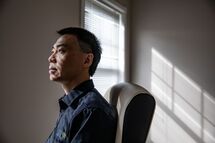
On July 18, 2019, Bloomberg reported on the story of Xin Zhao, a prize-winning Ph.D. from the College of William & Mary in Virginia, whose startup fled the U.S. after a federal investigation that included a failed sting, airport stops and an unfounded child-porn search.
“My dream was defeated,” says Zhao, whose crew-cut and boyish face belie the brash candor with which he tells his story. “I came here for freedom and security. Now fear is pushing us back to China.” Inventors with Chinese last names account for one out of every 10 new patents in the U.S. today, up from less than 2% in 1975... While China lost more than 50,000 inventors to emigration from 2002 to 2011, the U.S. welcomed a net gain of more than 190,000, as measured by patent registrations, according to data compiled by the World Intellectual Property Organization, an arm of the United Nations. |
How NOT To Cure Cancer:
The U.S. is purging Chinese scientists in a new Red Scare 
On June 13, 2019 Bloomberg Businessweek published The U.S. Is Purging Chinese Cancer Researchers From Top Institutions . The NIH and the FBI are targeting ethnic Chinese scientists, including U.S. citizens, searching for a cancer cure. It includes the first account of what happened to Xifeng Wu.
|
|
Additional Links and Reports
2019/07/19 Science: Mystery surrounds ouster of Chinese researchers from Canadian laboratory
星島日報 華裔科學家頻遭針對 科研生態受創難重建 2019/07/16 The Telegraph: Chinese researchers stripped of security clearance at Canada lab for deadly human diseases 2019/07/15 National Post: Dismissal and investigation by RCMP of Winnipeg co-inventor of Ebola drug stuns colleagues 2019/06/14 北美新视界: 红色警戒 | 吴息凤的遭遇以及美国顶级科研机构对涉中研究人员的清理 2019/06/14 Clean Technica: FBI & NIH Demonize Chinese Researchers As Trump-Inspired Paranoia Spreads Across America 2019/06/14 《知识分子中文报道》: 美媒揭秘FBI等如何以“莫须有”围剿华人科学家 |
Activists Including APA Justice Resist New "Red Scare"
|
On August 27, 2019, the South China Morning Post reported on the current state of fear of a new "Red Scare" and the fight including APA Justice against the targeting of Chinese Americans.
"As more Chinese Americans find themselves targeted in the increasingly bitter stand-off between Beijing and Washington, legislators, community groups and legal experts are pushing back in hopes of sending a message that enough is enough," the report said. "The US has arrested scientists of Chinese origin on industrial espionage and other charges, and multiple times the cases have been dropped for lack of evidence." "Chinese-Americans readily acknowledge that Beijing targets people of Chinese descent and that the US has every right to defend itself. But a disproportionate number of recent cases end up snaring innocent people targeted through racial profiling, eroding constitutional guarantees and wreaking havoc with individual lives and the community’s reputation." "Many scientists and academics of Chinese descent also end up accused of such violations as using pornography, cheating on expenses or making inaccurate disclosures to investigators when prosecutors fail to find evidence of links to China... There’s more collateral damage than protecting against espionage." "There are some legitimate concerns, but they are inflated, and Chinese Americans are being demonised. They’re collateral damage, like children caught in a broken marriage..." Ongoing efforts call for greater accountability over the security establishment, raising public awareness, continuing to promote understanding and dialogue, building community unity and coalitions, providing training, and taking legal actions against discrimination and wrongful arrest." Read the entire report here. |
2019年8月27日,《南华早报》报道当前对新“红色恐慌”的担忧以及包括APA Justice在内对针对华裔美国人的斗争。
报道称,"随着越来越多的华裔美国人发现自己成为北京和华盛顿之间日益激烈对峙的对象,美国国会议员,社区团体和法律专家正在开始反击,希望借此传达一个信息: 受够了。" “美国以工业间谍和其他罪名逮捕了多名华裔科学家,由于缺乏证据,这些案件很多被撤销。" “美籍华人欣然承认,北京方面针对华裔,美国完全有权自卫。但最近发生的不成比例的案件以种族定性为目标,将无辜的人拖入圈套,侵蚀了宪法保障,对个人生活和社区声誉造成严重破坏。" “当检察官未能找到与中国有关联证据的时候,许多无辜华人科学家和学者被指控犯有使用色情内容,欺骗费用或向调查员撒谎等行为... (欲加之罪,何患无词),附带的损害(因此)比防止间谍活动更多。" “有一些担忧是合理的,但它们被夸大了,华裔美国人正在被妖魔化。他们是附带的损害,就像陷入婚姻破裂的儿童一样..." 目前的努力包括要求加强对安全机构的问责制,提高公众意识,继续促进理解和对话,爭取社区团结和联盟,提供培训,并采取法律行动反抗歧视和非法逮捕。" 在这里阅读整个报道。 |
Another Bungled Economic Espionage Prosecution
又一拙劣的经济间谍指控
又一拙劣的经济间谍指控
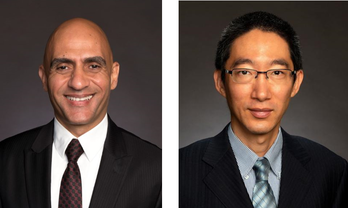
On July 17, 2019, law.com published a commentary titled: “Daily Dicta: Prosecutions Don’t get much More Pathetic Than This Case Against a Louisiana Scientist.”
“This case” refers to the prosecution of Dr. Ehab Meselhe, a prominent Egyptian American professor of the Department of River-Coastal Science and Engineering at Tulane University. There is a second defendant in the case, Mr. Kelin Hu (胡克林), a computer scientist and research assistant professor at Tulane University who is a U.S. permanent resident born in China. Both men were charged by the U.S. government for conspiracy and attempt to steal trade secrets (a computer simulation program that models how the Mississippi River Delta might evolve due to environmental changes and projects the impact of proposed restoration efforts) and to commit computer fraud and abuse on May 29, 2019 (case number 3:19-cr-00061). According to a media report, Mr. Hu was dramatically escorted from the Water Institute of the Gulf building by Baton Rouge police officers and FBI agents. After the U.S. government admitted that “it cannot meet its burden of proof in this matter” on July 15, the case was dismissed by the Louisiana Middle District Court. “I was a federal prosecutor for 20 years in New Orleans, and I’ve never seen anything like this,” said Dr. Meselhe's lawyer. FBI Director Christopher Wray has testified in Congress on July 23 that The FBI has over 1,000 investigations open into attempted intellectual property theft, nearly all of them involving Chinese. |
2019年7月17日,law.com发表了一篇题为《每日名言: 没有比这桩针对路易斯安那州科学家的案件更可悲的了》的评论文章。
“本案”指的是对杜兰大学河滨科学与工程系著名美籍埃及裔教授Dr. Ehab Meselhe 梅塞尔赫博士的起诉。此案的另一名被告Mr. Kelin Hu (胡克林)是一名计算机科学家,杜兰大学研究助理教授,也是出生在中国的美国永久居民。 两人在2019年5月29日被指控企图阴谋窃取商业机密(一个关于密西西比河三角洲地区如何由于环境变化而对提议修复项目产生影响的计算机程序模拟模型)和计算机欺诈和滥用罪(案件号码:3:19-cr-00061)。据媒体报道,胡克林引人注目地被路易斯安那州巴吞鲁日的警官和FBI特工带出海湾水利研究所大楼。 7月15日,在美国政府承认“在这件事上它无法承担举证责任”之后,路易斯安那州中央地方法院撒消此案。“我在新奥尔良做了20年的联邦检察官,从来没有见过这样的事情,”梅塞尔赫博士的律师说。 美国联邦调查局(FBI)局长克里斯托弗·雷(Christopher Wray)7月23日在国会作证表示,FBI对超过1,000起试图盗窃知识产权的案件展开了调查,几乎所有案件都涉及华人。 |
|
Additional Links and Reports
2019/07/17 Law.com: Daily Dicta: Prosecutions Don’t Get Much More Pathetic Than This Case Against a Louisiana Scientist
2019/07/16 Tulane University: Statement on Professor Ehab Meselhe and Research Assistant Professor Kelin Hu 2019/07/15 NOLA.com: In stunning reversal, charges dropped against Louisiana coastal scientists accused of stealing 'trade secrets' 2019/07/15 U.S. Department of Justice: Motion to Dismiss Case 3:19-cr-00061 USA v Meselhe and Hu 2019/07/02 Business Report: Indicted coastal researcher fires back at feds, sues TWIG over records request 2019/07/01 NOLA.com: Shock waves from Water Institute: How criminal case over disputed 'trade secrets' hits Louisiana 2019/06/05 The Advocate: Ex-Water Institute employees now at Tulane accused of plotting to steal trade secrets More details about this case and all known prosecutions under the Economic Espionage Act since its enactment are available are at https://jeremy-wu.info/fed-cases/ |
Department of Energy Policy Change and Directives
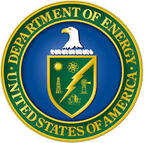
On June 13, 2019, The American Institute of Physics (AIP) reported that "The Department of Energy (DOE) has issued a directive prohibiting its employees and most contractor personnel from participating in certain talent recruitment programs operated by rival nations." DOE officials have said the policy is currently limited to four: China, Iran, North Korea, and Russia.
AIP first reported "US Government Escalates Opposition to Chinese Talent Recruitment Programs" in February 2019, including a link to a January 31, 2019 DOE memorandum. Links and Reports
2019/06/11 Physics World: US energy department cracks down on foreign recruitment programmes
2019/06/07 The Scientist: US-China Tensions Leave Some Researchers on Edge 2019/06/02 AP: At LANL, political pawn or security risk? 2019/05/28 Science: Former Los Alamos physicist denies federal charges he lied about China ties 2019/05/28 South China Morning Post: US scientist Turab Lookman pleads not guilty to lying about contact with Chinese state programme that recruits foreign talent 2019/05/28 Albuquerque Journal: LANL scientist pleads not guilty to lying about contacts 2019/05/24 Albuquerque Journal: Former LANL scientist charged with lying |
Tarub Lookman - Retired Los Alamos Physicist
On May 22, a federal grand jury indicted Tarub Lookman, a naturalized U.S. citizen of Indian origin, on three charges of making false statements about his contacts with the Thousand Talents Program, which since 2008 has used offers of salaries and other support to establish ties with scientists working outside of China.
According to Science, Dr. Lookman spent 2 decades at the Department of Energy’s Los Alamos National Laboratory (LANL) in New Mexico, beginning in 1999. He has a doctorate in theoretical physics and was awarded a prestigious LANL fellowship in 2017. On May 28, Dr. Lookman pleaded not guilty to the federal charges. He was released to home detention with a GPS monitoring bracelet after posting a $50,000 bond. |
|
IEEE Lifts Restrictions on Editorial and Peer Review Activities
On My 22, 2019, the Institute of Electrical and Electronics Engineers (IEEE) issued a statement that forbids its colleagues from Huawei and 68 of its affiliates from reviewing or accessing non-public papers submitted by other persons for publications; purchasing IEEE products such as hats, sweatshirts, or even coffee mugs; or participating in any non-public meetings that involve technical discussions.
On June 2, 2019, IEEE issued an update statement reversing its restrictions on editorial and peer review activities. According to IEEE, after the U.S. Department of Commerce applied export control restrictions to Huawei Technology Ltd. and 68 of its affiliates, IEEE issued a statement regarding compliance and stated if the U.S. government clarified the application of the U.S. Export Administration Regulations with respect to peer review IEEE would provide an update to the IEEE community. "IEEE has received the requested clarification from the U.S. Department of Commerce on the applicability of these export control restrictions to IEEE’s publication activities. Based on this new information, employees of Huawei and its affiliates may participate as peer reviewers and editors in our publication process. All IEEE members, regardless of employer, can continue to participate in all of the activities of the IEEE." According to IEEE, it is the world's largest technical professional organization dedicated to advancing technology for the benefit of humanity. Links and Reports
2019/06/03 Financial Times: Top industry standards body reverses Huawei ban
2019/06/02 Reuters: U.S.-based engineers' body lifts curbs on Huawei employees 2019/06/02 ZDNet: No ban: IEEE gives Huawei employees the all-clear 2019/05/31 South China Morning Post: China computer research body cuts ties with IEEE in protest at decision to bar Huawei from peer review 2019/05/30 South China Morning Post: World’s largest technical professional society bans Huawei staff from peer review of research 2019/05/29 Synced: ML Community Raises Inclusivity Concerns After IEEE Bars Huawei Paper Reviewers |
This May 29 essay titled "My Science Has No Nationality" by a young Chinese American female physicist describes the plight of many of today's Chinese American scientists in these challenging times between the U.S. and China.
"For Chinese scientists who immigrated to the U.S., where do their hearts and bodies belong? In their home country, where an authoritarian government is increasing its hold on society, aided by technology for surveillance and censorship? Or in a country whose president actively rejects them, where they are painted as spies?" |
MD Anderson Cancer Center

On April 19, 2019, the Houston Chronicle and Science jointly reported that 3 scientists were ousted by MD Anderson Cancer Center over concerns about Chinese conflicts of interest, the first such publicly disclosed punishments since federal officials directed some institutions to investigate specific professors in violation of granting agency policies.
MD Anderson took the actions after receiving e-mails last year from the National Institutes of Health, the nation’s largest public funder of biomedical research, describing conflicts of interest or unreported foreign income by five faculty members. The agency, which has been assisted by the FBI, gave the cancer center 30 days to respond. The departures follow an unprecedented Houston gathering last summer at which FBI officials warned Texas academic and medical institution leaders of the threat, particularly from insiders, and called on them to share with the agency any and all suspicious behavior and information. On April 25, 2019, the United Chinese Americans (UCA), a nationwide nonprofit and nonpartisan federation and a community civic movement, released a statement to raise concerns for Chinese American scientists as collateral damage in the crossfire between the United States and China due to deteriorating relations, including five appeals to address the current situartion. Read more at Community Responses. This was reported by the Houston Chronicle reported on April 29, 2019 as expressing "grave concern" that ethnically Chinese scientists have become "collateral damage in the crossfire" of deteriorating U.S.-China relations. |
Introduction
|
2019/03/25 Ropes & Gray LLP Teleconference presentation slides on "NIH Inquiries into Foreign Research Support, 'Foreign Components' of Awards, and Personal Income from Foreign Government Entities. See link to entire teleconference here.
"Have You No Sense of Decency, Sir?"
|
Are We Again in a "Fog of War?"
|
Lesson #1: Empathize with the enemy 5:40
Lesson #2: Rationality will not save us 12:15 Lesson #3: There is something beyond one’s self 20:55 Lesson #4: Maximize efficiency 25:40 Lesson #5: Proportionality should be a guideline in war 32:55 Lesson #6: Get the data 40:40 Lesson #7: Belief & seeing are both often wrong 54:30 Lesson #8: Be prepared to re-examine your reasoning 1:06:56 Lesson #9: In order to do good, you may have to engage in evil 1:11:00 Lesson #10: Never say never 1:15:00 Lesson #11: You can’t change human nature 1:22:55 |
From Robert McNamara's 1995 book In Retrospect: The Tragedy and Lessons of Vietnam. (Wikipedia)
|
